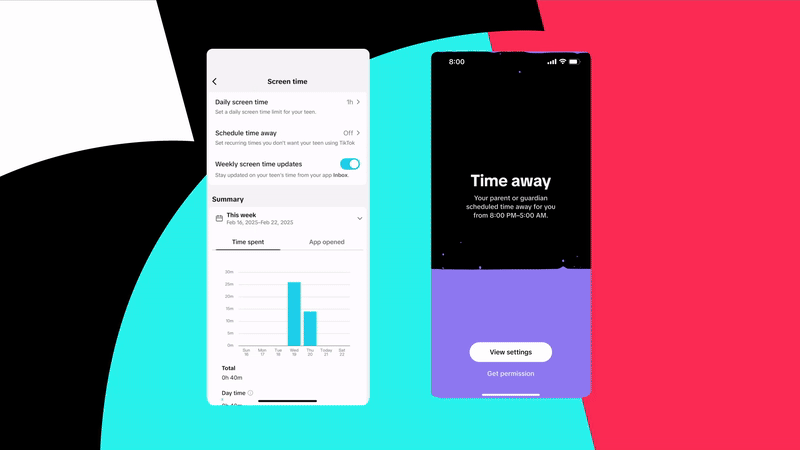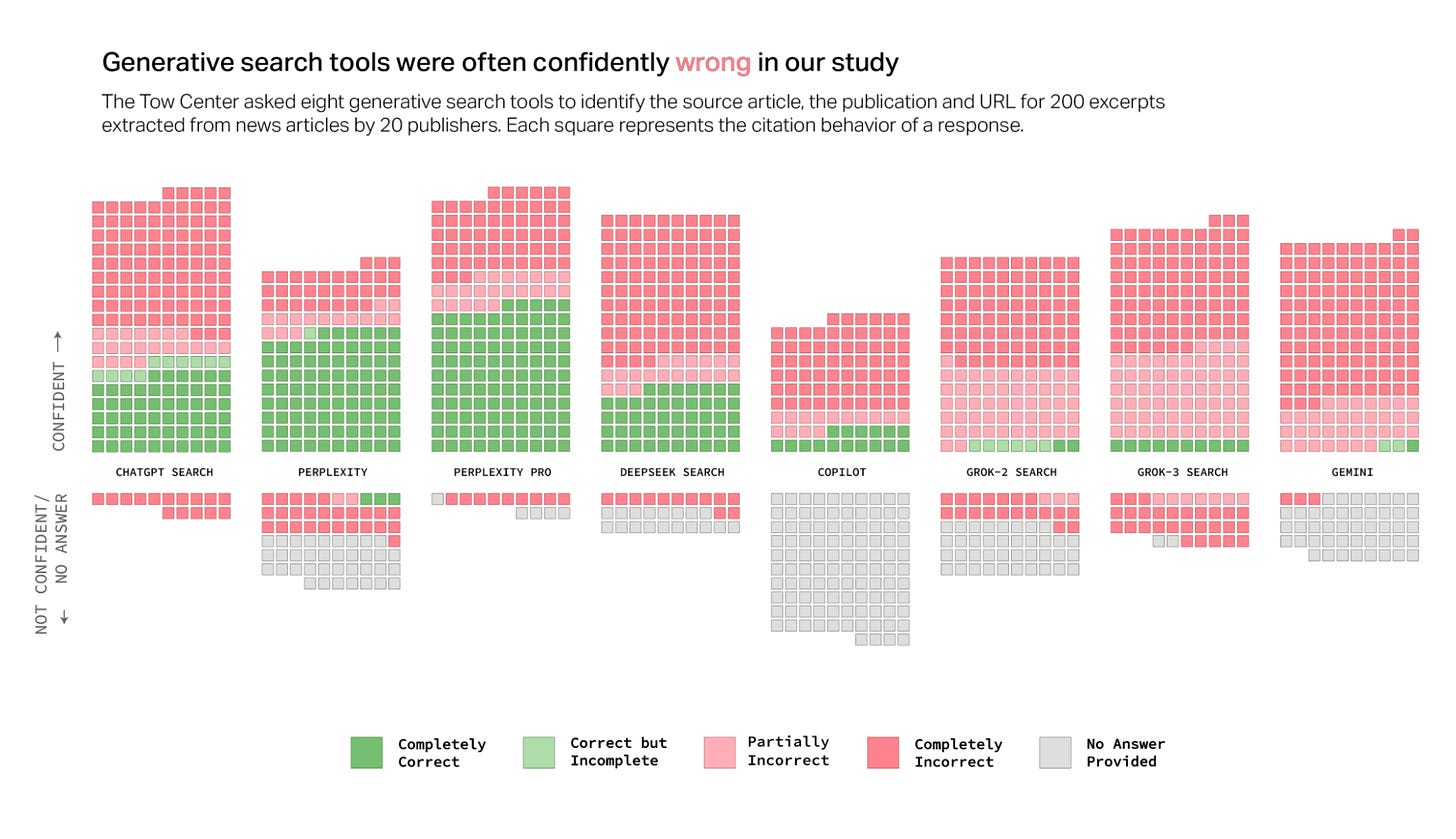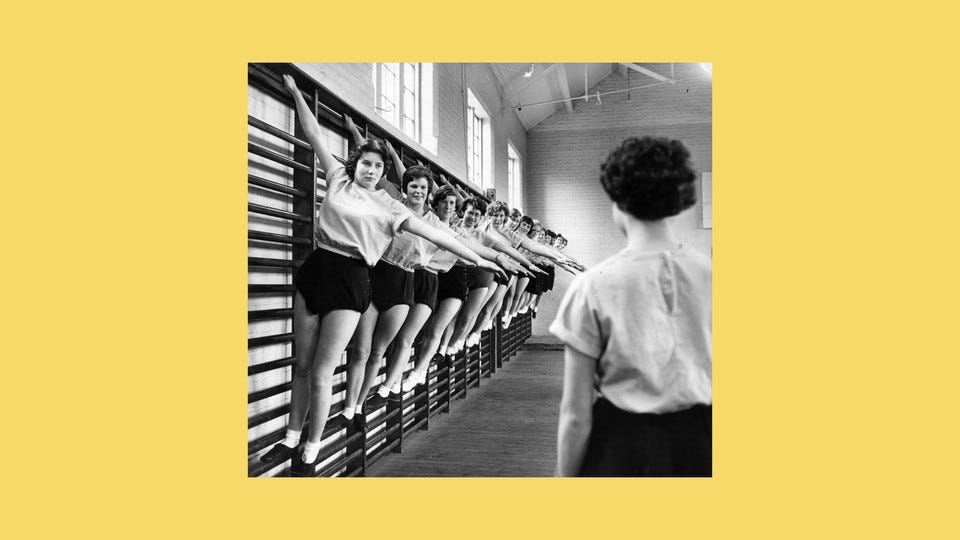- Braun & Brains
- Posts
- Thoughts on coaches, keeping an eye on the video game world, and some cool things happening in AI.
Thoughts on coaches, keeping an eye on the video game world, and some cool things happening in AI.
What startups should be on my radar?
Braun & Brains is my personal outlet where I cover tech, business, and adjacent topics. Need production, insights, or a fresh perspective for your podcast or social media? Let’s talk.
Yesterday, I saw that the amazing team at Pickle, a peer-to-peer clothing rental marketplace I’ve been raving about for years, raised $12M in Series A funding, co-led by FirstMark and Craft Ventures. I first found Pickle through a mutual friend of cofounder Julia O’Mara, and we ended up grabbing coffee at Pause Cafe. She’s fantastic, and I can’t wait to see the company grow and to rent out more of my dresses this summer, just in time for wedding season. I love spotting startups early, believing in them, and watching them take off. My next newsletter will feature an interview with a founder I’m especially bullish on. I really enjoyed my last one with January AI’s CEO and cofounder, where we dove into the future of blood sugar tracking. Excited to keep these interviews going.
Let me know if there’s anyone who should be on my radar → [email protected]
Let’s get into the newsletter…
Big Tech
In this world nothing can be said to be certain, except death and taxes… and also rich guys getting into space after they made FU money. Paul Allen. Jeff Bezos. Richard Branson. Elon Musk. And now, Eric Schmidt. The former Google CEO is now the CEO of Relativity Space. Sources say he made a big investment in the rocket startup to take control. (New York Times)
Speaking of space guys, Elon Musk said X was down because of cyberattacks. I must be doing better with my screen time because I had no idea this happened. (Forbes)
TikTok roundup: TikTok is rolling out a new “wind down” feature for users under 16, if they’re still scrolling after 10 PM, the app will interrupt their feed with calming music. (The Verge) Parents now have more control over their teen’s TikTok habits. (TikTok) They can see who their kid follows (and who follows them) and block app access during certain hours. (TechCrunch)

Videogames
Niantic is selling its video game division, including Pokémon Go, to Saudi-owned Scopely for $3.5B. The deal still needs regulatory approval. The big question: what is happening to all that map data? Saudi Arabia seems to be really focusing on esports, preparing to host the first edition of the Olympic Esports Games in 2027—a big deal for the gaming community and the Olympic Movement. (The Verge)
Lego is doubling down on gaming. After a 13% revenue jump in 2024, CEO Niels Christiansen says the company will start developing video games in-house. Their Fortnite collaboration is already a hit with 87M players, and they are just getting started. (Financial Times)
A leaked video shows Sony is working on an AI-powered version of Aloy from Horizon Forbidden West that can respond to players via voice prompts. Nvidia has also been developing AI-powered NPCs (Non-Playable Characters)with tech called Ace that lets players speak freely to in-game characters. Microsoft is working with Inworld AI to bring generative AI characters and storylines to Xbox. Some people in the gaming industry are worried about AI’s impact on creativity, especially amid layoffs. A Game Developers Conference 2024 survey found that 49% of developers use generative AI tools at work, with 31% using them personally. (The Verge)
Microsoft is developing an Xbox-branded gaming handheld, launching in late 2025, along with new Xbox consoles expected in 2027. (CNET)
Netflix's former gaming head Mike Verdu has exited the company following a leadership shift, while Netflix continues to restructure its gaming strategy, and major industry players like Epic, Ubisoft, and Nintendo are scaling back their presence at this year's Game Developers Conference. (Gamefile)
AI
A study found that AI search engines are bad at citing sources, getting it wrong over 60% of the time. Grok 3 was the worst, with a 94% error rate. Instead of admitting when they don’t know something, these tools often make up answers with confidence. Paid versions, like Perplexity Pro and Grok 3, sound more trustworthy but still get things wrong. Some even pull information from restricted sources. On top of that, AI-generated summaries take traffic away from original news sites, hurting their visibility and revenue. While some experts think these tools will improve, their current flaws make them unreliable for news. (CJR)

The FTC says Americans lost $12.5B to scams last year, partly due to AI making fraud easier. Social media and crypto are also to blame. “Elderly people who are less familiar with technology are often considered especially vulnerable to online scams, but the FTC says that people aged 20-29 lost money more often when reporting scams than people above the age of 70.” (TechCrunch)
Lila Sciences, an AI startup founded in 2023, just emerged from stealth with a $200M seed round to accelerate scientific discovery. In one project, AI helped scientists find a new catalyst for green hydrogen production in just four months, a process that usually takes years. The breakthrough convinced top researcher John Gregoire to leave Caltech and join Lila as head of physical sciences research. “Our goal is really to give A.I. access to run the scientific method — to come up with new ideas and actually go into the lab and test those ideas,” Dr. Molly Gibson, Lila cofounder. (New York Times)
BoF Insights and Quilt.AI just launched PULSE, an AI tool that turns social media chatter into business intelligence. Little do they know, Databutmakeitfashion has been doing this for years. (The Databutmakeitfashion founder, Made, is awesome; I actually got to interview her for the OG Braun & Brains podcast a few years ago all about marrying her Harvard Computer Science with her love for fashion.)
Brain Food: The Coaching Crutch
Brain Food is a segment where I share my thoughts. Feel free to enjoy or tell me if you hate it here!
I recently read an article about how coaching is the new asking your friends for help, and it got me thinking. People have been paying for friends that play a certain role for as long as I can remember. Social clubs are a way to buy access to people of a higher social status. Greek life in college offers an entry point to socially influential people on campus. Private schools provide a network of classmates whose parents can offer the same. These aren’t necessarily the main reasons people participate in these things, but they are a benefit. In a way, they are paying for better friends.
Beyond social access, there's been a rise in outsourcing emotional labor and decision-making to paid professionals rather than relying on friends and community. This shift pushes individualism forward in a society that has already been moving toward declining social bonds and an increasing pressure to perfect life. Is this trend improving lives, or is it further isolating people from genuine human connection? More than ever, people are paying for more helpful friends.
This trend fits into a broader cultural shift toward optimizing every aspect of life. From sunup to sundown, someone is trying to sell you something to make your hours as productive as possible. Having a coach can be seen as an investment in yourself, paying to make the right choice rather than wasting time.
The appeal is interesting. Coaches are paid, which means they are generally supportive in a way that friends might not always be. It takes a real friend to listen to the same problem over and over again. With the rise of “protecting peace,” “setting boundaries,” and “not owing anyone anything,” I bet a lot of friendships that used to offer that kind of redundant support have faded. Coaches, on the other hand, aren’t there to share their own problems, so they won’t add to the mix for the person paying.
These coaches are subject matter experts, so you are paying to cut straight to the source. You could do research or dig a little deeper to find a community or someone in your orbit with the information you need, but hiring a coach is the leanest, most direct way to get it. Think of it like Friendship Lite.
"When the well-heeled can afford to take their problems to a coach, friends risk becoming merely the people with whom we have pleasant catch-up brunches before we rush home to pay by the hour to give the real dirt to a stranger." - Olga Khazan
This can be good for some things, like co-parenting or IVF, where speaking to a subject matter expert with no personal stake is beneficial. However, these sessions, which can cost thousands of dollars, aren’t always worth it. If you see one of your friends tweeting about meditation, they would probably be happy to do a free one-on-one session with you and talk all about it. If you buy them a coffee, they might even do it a second time.
So before you hire a business coach, a life coach, or a fitness coach, ask yourself—do you really need one? Or do you just need to start asking your community for help?
I’ve been considering a running coach.
Thanks for reading!
Subscribe to Braun & Brains


Reply